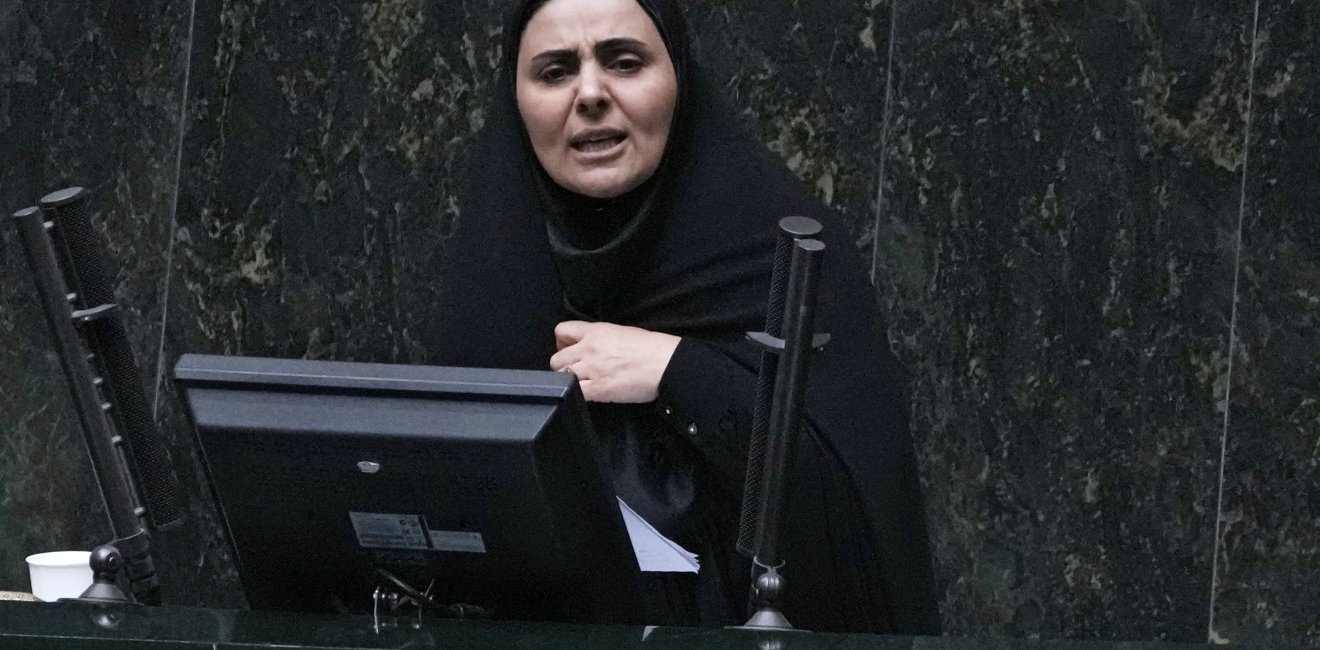For the moment, the public has adopted a ‘wait and see’ attitude towards the president, but their patience may not last long.
Iran’s new president, Masoud Pezeshkian, appointed one woman, Farzaneh Sadegh, to his cabinet as minister of roads and urban development. This is only the second time in the 45-year history of the Islamic Republic that a woman has made it into the cabinet. Even so, she faced strong opposition in the Majlis, or parliament, whose members must approve all cabinet appointments.
The deputies claimed they objected to her appointment not because of her sex but because of her lack of qualifications. But Sadegh is hardly unqualified: she is an engineer by training, has experience serving in different parts of the government, including as deputy minister of urban planning, and proved herself a tough match for objecting parliamentarians. She reminded them that she has always spoken her mind, objected to policies of previous administrations in which she served, and owes nothing to anyone.
Nevertheless, President Pezeshkian was able to overcome parliamentary opposition to her appointment by invoking the name of the Supreme Leader, Ali Khamenei. Pezeshkian reported that Sadegh was the choice of Ayatollah Khamenei himself and that the highest authority in the land (meaning the Supreme Leader) had approved his cabinet choices. Thus, the deputies dutifully fell into line and gave Sadegh their vote of confidence.
Previous women appointments to the cabinet
The parliament’s reaction to Sadegh as a cabinet choice repeats a common pattern in the history of the Islamic Republic. Previously, President Mahmoud Ahmadi Nejad tried to name three women for cabinet posts; the parliament rejected two and approved one, Marzieh Vahid Dastjerdi as minister of health. She was not reappointed in Ahmadi-Nejad’s second term due to a fallout with the president.
Other previous presidents, including ‘reformist’ presidents Hashemi-Rafsanjani, Mohammad Khatami, and Hassan Rouhani, did not even try to name women to their cabinets, wishing to avoid disputes with parliament. The ultra-conservative Ebrahim Raisi followed suit. A handful of women have been elected to successive parliaments, ranging from four in the first parliament (1979-1983) to 16 in the current parliament, but the Majlis has remained a bastion of male members.
Women in other governmental roles
Presidents have sought to appease the women’s constituency by appointing women as advisors and vice presidents (Presidents can appoint several vice presidents, assigning them different responsibilities). The reason is simple: the president does not need parliamentary approval for such appointments. Presidents Khatami, Rouhani, and Ahmadi Nejad named women variously as vice presidents for environmental affairs, women’s affairs, and cultural affairs.
Following this tradition, Pezeshkian named two women as vice-presidents: Shina Ansari, a career environmentalist, as head of the Department of the Environment, and Zahra Behrouz-Azar as vice-president for women’s affairs. Behrouz-Azar has been a critic of the morality police and their harsh crackdown, arrests, and mistreatment of women during the 2022 protest movement and against the enforcement of the hijab. President Pezeshkian also appointed Fatemeh Mohajerani as the government spokesperson, a first in the history of the Islamic Republic. According to the Tehran Times, a daily English paper in Iran, she has a doctorate in business administration from the Edinburgh campus of Heriot-Watt University in Scotland. Her career has been mostly as an educator.
Will Pezeshkian deliver?
Activist women are waiting to see whether President Pezeshkian will curb the morality police and provide a safe environment for women on the streets, in public places, and on university campuses, and whether he will secure the release of the many young women and men serving long prison sentences. He recently told his minister of higher education to look into reinstating university professors and students dismissed for participating in the 2022 ‘Women, Life, Freedom’ protests. For the moment, the public has adopted a ‘wait and see’ attitude towards the president, but their patience may not last long.
The views represented in this piece are those of the author and do not express the official position of the Wilson Center.








